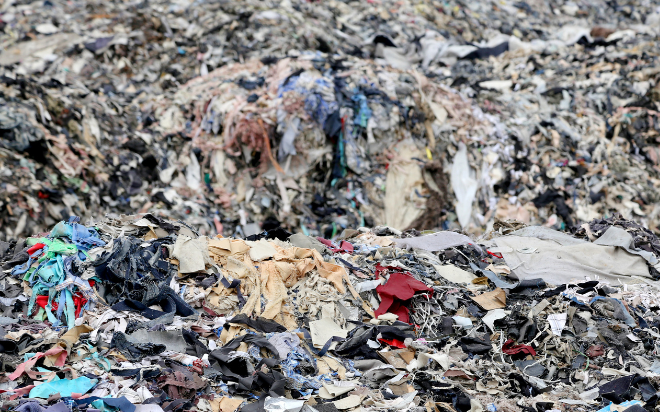According to data from the European Union (EU), citizens generate 12.6 million tonnes of textile waste per year, of which only 22% is collected for reuse or recycling. In addition, and as stated by the United Nations (UN), the textile industry consumes large quantities of water, and is also the second most polluting industry after the oil industry.
For this reason, the European VERDEinMED project, ‘PreVEnting and ReDucing the tEXtiles waste mountain in the MED area’, has started its work to reduce textile waste in the Mediterranean region. The initiative, co-funded with nearly € 3 million by the EU Interreg Euro-MED programme, held its first consortium meeting in February in Kastoria (Greece) to define the next lines of action.
“Mediterranean countries face a common challenge of water scarcity, so in VERDEinMED we will focus on improving the sustainability of the textile and clothing value chain, promoting better use of resources and reducing its carbon footprint,” says Chrysovalantis Ketikidis, research associate at the Centre for Research and Technology-Hellas (CERTH) in Greece and coordinator of the project.
In addition, VERDEinMED will dedicate its efforts to the textile industry, supporting the adoption of processes and technologies focused on the circular economy. Aligned with the Waste Framework Directive, which mandates a separate collection of textiles by 2025, and with the EU Strategy for Sustainable and Circular Textiles, the project aims to create an innovative model of production and consumption patterns. Thus, VERDEinMED will seek a positive impact on society, the environment, and economics by proposing cost and resource efficient processes.
Tools to promote circularity
The VERDEinMED project is one of the 14 thematic projects of the Interreg Euro-MED Innovative Sustainable Economy Mission programme, and one of the two approved projects addressing the circular economy. Over the course of 33 months, its partners will develop tools to facilitate the transition to circularity and sustainability in the textile and clothing sector, covering critical issues such as industrial production techniques, consumption habits, and reuse and recycling options.
The creation of a Green Compass (Verde Bussola), understood as a compendium of the tools and knowledge generated in VERDEinMED, will be the basis for integrating the different activities to be developed by its partners. These include the creation of regional or national hubs, the establishment of a knowledge platform and the creation of a support service for businesses, policy makers and citizens.
25 Mediterranean entities
The VERDEinMED project, launched in January 2024, brings together 10 partners and 15 associated entities including research centres, companies, non-governmental organisations, public administrations, clusters and cooperatives. The 10 partners are located in 7 countries: Bulgaria, Greece, Italy, Northern Macedonia, Portugal, Slovenia and Spain. In addition, the project has 15 associated partners who will spread the VERDEinMED message in the Interreg Euro-MED cooperation area. With the collaboration of institutions from Belgium, Lebanon, Tunisia and Turkey, 11 countries are involved in the initiative.
Below is the list of partners and entities associated to the project.
Partners:
- CERTH – The Centre for Research & Technology, Hellas – Greece
- Bulgarian Fashion Association – Bulgaria
- CITEVE – Portugal
- Confindustria Umbria- Italy
- Consorci de la Ribera – Spain
- Corporación Tecnológica de Andalucía – Spain
- Diadyma S.A. – Greece
- e-Zavod – Slovenia
- Legambiente – Italy
- Textile Trade Association – Textile Cluster (TTA-TC) – North Macedonia
Associated partners:
- Agence Nationale de Promotion de la Recherche Scientifique (ANPR) – Tunisia
- American University of Beirut – Lebanon
- BURSA Fashion Week – Turkey
- Bulgarian-Romanian Chamber of Commerce and Industry – Bulgaria
- Comune di Narni – Italy
- Dali Sport – Slovenia
- Dimos Kozanis – Greece
- Insieme Società Cooperativa Sociale a.r.l. – Italy
- Instituto Valenciano de Competitividad Empresarial – Spain
- Moden Vikend Skopje – North Macedonia
- Municipality of Vila Nova de Famalicão – Portugal
- SASIA – Reciclagem de Fibras Têxteis S.A – Portugal
- Sistema Moda Italia – Federazione Tessile e Moda – Italy
- Reuse and Recycling European Union Social Enterprises – Belgium
- Zavod Korak Naprej Murska Sobota – Slovenia


